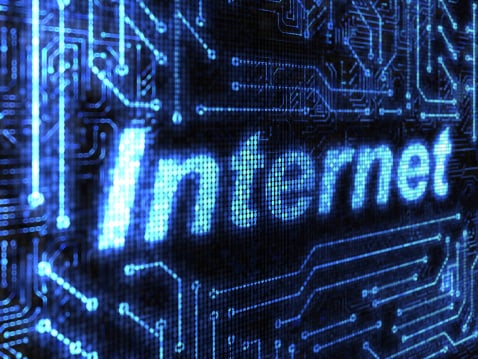Technology
Is the FCC About to Declare the Internet a Public Utility? (Update)
Published:
Last Updated:

In a peace offering to Internet service providers, Wheeler proposes modernizing Title II to provide sufficient returns to “construct competitive networks.” He promises “no rate regulation, no tariffs, no last-mile unbundling.”
The handwriting may have been on the wall since last November when President Obama made a very strong statement supporting net neutrality, the concept that all data packets on the Internet should be treated equally. That is, no person or entity can pay a toll to drive in an Internet “fast lane” and that the Internet should be regulated as a common carrier. That statement apparently caused Federal Communications Commission (FCC) Chairman Tom Wheeler to make a U-turn from an earlier “hybrid” proposal he had made that would have allowed some prioritization based on ability to pay.
ALSO READ: China Internet User Base Hits 649 Million
Wheeler is expected to release a new proposal on Thursday that insiders believe adopts the president’s position to regulate the Internet as a common carrier. The giant service providers — Verizon Communications Inc. (NYSE: VZ), AT&T Inc. (NYSE: T) and Comcast Corp. (NASDAQ: CMCSA) — are certain to file lawsuits challenging any such attempt at regulation.
These carriers have spent billions of dollars laying cable and their goal for at least the past 20 years has been to avoid just offering “fat pipes.” They argue that traffic to the edge where backbone meets the last mile is neutral and that heavy content providers like Netflix Inc. (NASDAQ: NFLX) should pay more to deliver high-bandwidth service to customers. Verizon’s FiOS, Comcast’s Xfinity and AT&T’s U-verse would all benefit from such an arrangement.
Verizon won a Supreme Court challenge to an earlier attempt by the FCC to regulate the Internet as an “information service,” a designation applied by the FCC in 2005 that means that the service providers are not regulated as common carriers. In its ruling, however, the Court essentially reminded the FCC that it had the authority to declare the Internet a common carrier and if it did so, the decision would likely hold up in court. Now, it appears, we are about to find out if that is true.
The FCC is scheduled to meet on February 26, and if Wheeler issues his new proposal right away, the full commission could vote on it at that meeting.
ALSO READ: Top Internet Stocks Report Earnings This Week: Who Wins and Loses?
Are you ready for retirement? Planning for retirement can be overwhelming, that’s why it could be a good idea to speak to a fiduciary financial advisor about your goals today.
Start by taking this retirement quiz right here from SmartAsset that will match you with up to 3 financial advisors that serve your area and beyond in 5 minutes. Smart Asset is now matching over 50,000 people a month.
Click here now to get started.
Thank you for reading! Have some feedback for us?
Contact the 24/7 Wall St. editorial team.